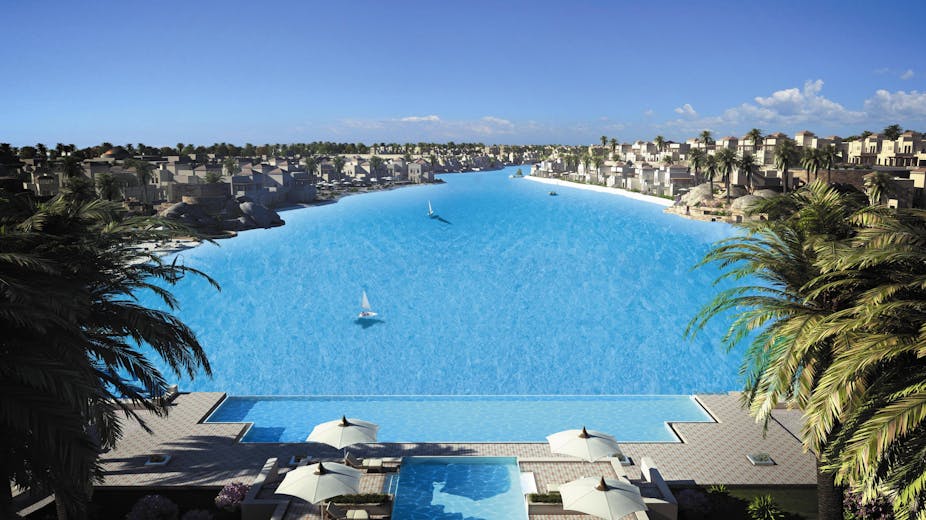How do you choose where to go on holiday? If you haven’t got anywhere specific in mind, such as the Pyramids, the Great Wall of China or Niagara Falls, there are an almost infinite number of alternatives to choose from. So one of the main factors to take into account is safety - people tend to avoid destinations that offer a greater level of risk than they get back in return for the benefits they get from going there. So how does travel risk fit into the decision making process of leisure tourists?
To understand this we collected 394 questionnaires before and during the Arab Spring, when Tunisia first flared up through to the time when the focus was on change in Egypt and Libya. The data was collected from September 2010 to June 2011 from residents across the UK. We asked people: “How much risk do you feel is involved when travelling to a list of Middle East countries?”

From the results it became clear that Egypt was seen as a moderate-to-low risk destination, along with countries such as Jordan, Oman and Syria, which at the time had no civil wars. The respondents were then asked: “If time and money were not an obstacle for your next vacation would you go to any of the following destinations? The results from this question placed Egypt firmly into the desirability group enjoyed by the low-risk countries such as Turkey and the UAE.
Risky but rewarding

As figures 1 and 2 show, Egypt at the time of the overthrow of president Mubarak was seen as being more risky than Turkey and the United Arab Emirates, yet in terms of popularity it was clustered alongside both countries. So despite being associated with significantly more travel risk in the aftermath of the Arab Spring, Egypt was still a popular tourist destination. Our results were supported by the findings of an American Express study which showed that sales of Egyptian currency were steady or increasing during this period.
Egypt has been cleverly marketed - while much of the violence and turmoil has taken place in Cairo, the political seat of power, the tourism industry has been able to brand Sharm-al-Shekh and the Red Sea as distinctly separate destinations to Egypt itself. This has kept the tourists coming in. Unlike many terrorist attacks, particularly in Egypt’s past, that were focused on targeting tourists, these latest incidents are not - and again this can go some way to alleviating the risk elements that tourists may take into their decision making process.

Figure 3 shows that Egypt was recovering well as a result of the global financial crisis that started in 2008 and by 2010, the time of this study, it was again growing strongly. The Arab Spring created something of a downturn in tourism fortunes but one from which Egypt began to recover in 2012.
When negative events occur, tour operators tend to respond by reducing prices which broadens the appeal by opening Egypt as a destination to people who may not normally be able to afford it. This risks being a double-edged strategy - while it may boost visitor numbers in the short term, it can have some negative long-term consequences if the types of visitor attracted damages the core tourism business by lower expenditure per person and greater environmental and socio-cultural damage.
Massacres are bad PR
But there is always a limit to how much risk people will be willing to consider while planning their holiday - and this limit can easily be reached once the media starts to focus on armed riot police and protesters laying dead or dying in the streets from gunshot wounds, all in graphic detail. This is true even when the violence may be confined to a small geographical area.
Egypt is now subject to travel warnings from the UK government, highlighting areas advising where not to travel and where only essential travel should be undertaken. The major tour operators are getting nervous and companies such as TUI have cancelled all holidays to Egypt for its German customers following travel warnings.
The Red Sea resorts are still getting the green light from the UK government but the media exposure together with the elevated travel warnings and advice such as "don’t go out of the tourist areas” and “exercise great prudence” may well be sufficient to switch the tap of tourists off altogether. The tourists will vote with their wallet and travel to one of the many alternative destinations until such time as Egypt wins back their faith and confidence.
Thus, with tourism accounting for a significant proportion of the national economy (more than 11%) a major victim of this political turmoil is the economy and the population at large. This is yet another hit on an economy that has already suffered as a result of the Arab Spring.
This adds a layer to the ethical decision facing anyone who may want to book a holiday in Egypt. On one side of the ledger, people may feel that it is wrong to legitimise a regime that is presiding over the violence and unrest that they are seeing nightly on the television news. When the civil war in Sri Lanka was reaching its bloody climax, the country was still one of the most popular holiday destinations, causing many people to ask whether it was right or wrong to take a holiday in a country where, elsewhere, there was so much suffering.
But equally, if tourism in Egypt were to collapse, the suffering of ordinary people across the country would be greater because the the detrimental effect on the economy. After the 2004 tsunami in south-east Asia, many people asked themselves if it would be OK to holiday in a region where there was still so much suffering. The answer from the area was unequivocal: “Yes - because we need the money.”

